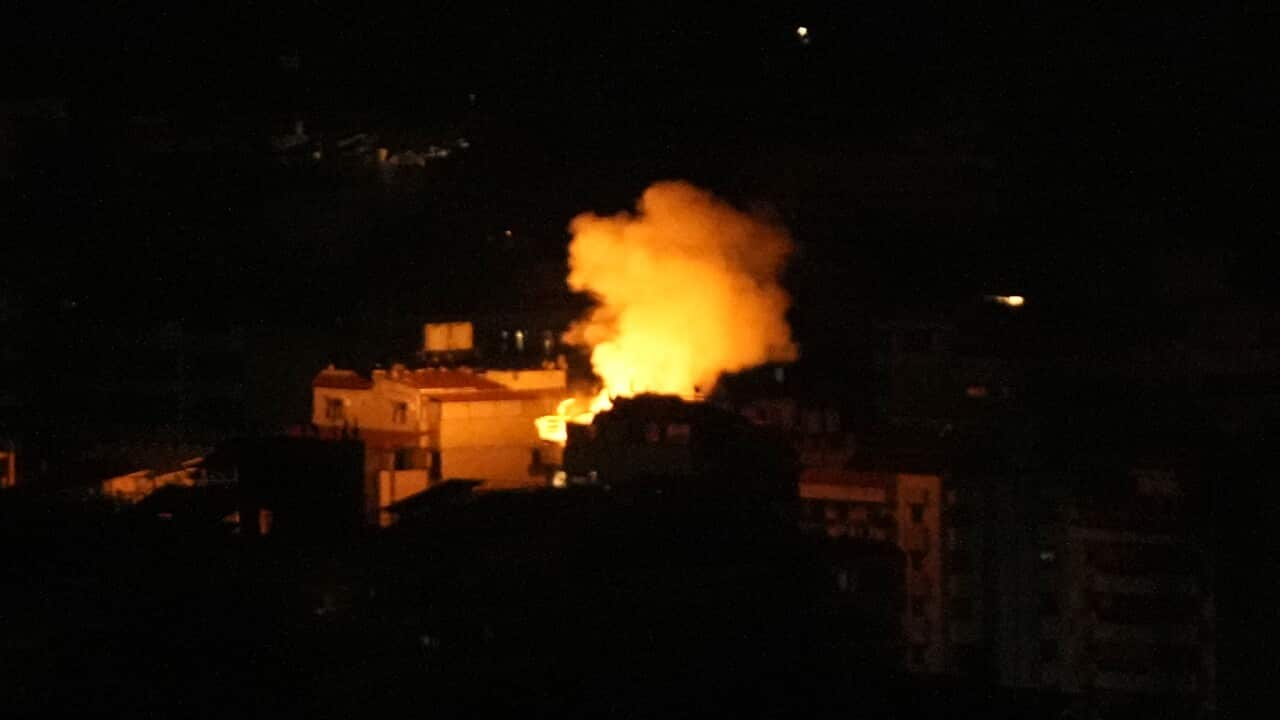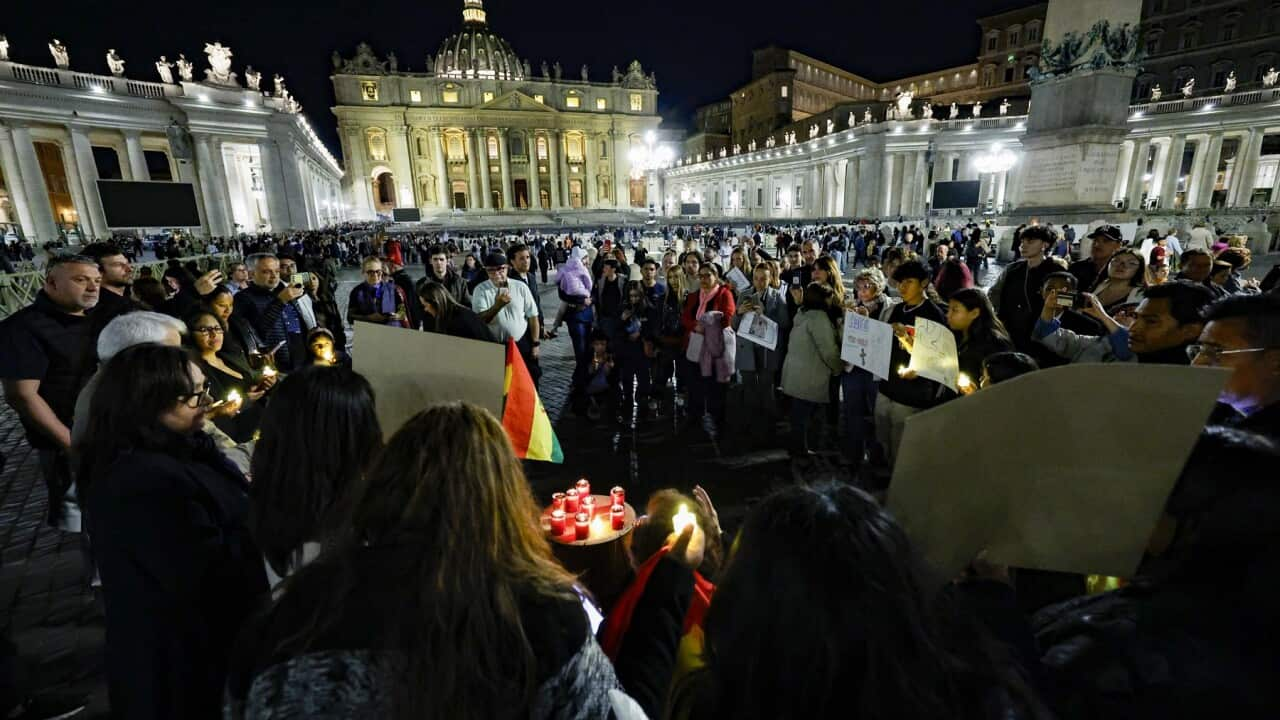TRANSCRIPT
The Israel Defence Forces have announced on X - formerly Twitter - that they have officially begun a ground operation in Lebanon.
"In accordance with the decision of the political echelon, a few hours ago, the IDF (Israel Defence Forces) began limited, localised, and targeted ground raids based on precise intelligence against Hezbollah terrorist targets and infrastructure in southern Lebanon. These targets are located in villages close to the border and pose an immediate threat to Israeli communities in northern Israel. ... The Israeli Air Force and IDF Artillery are supporting the ground forces with precise strikes on military targets in the area."
Flares and explosions were seen in the border between Israel and Lebanon on Monday night into Tuesday morning.
Explosions were also heard and smoke could be seen rising near the Beirut-Rafic Hariri International Airport in the Lebanese capital.
Huge consecutive blasts were heard across the Lebanese capital just after midnight on Tuesday, Reuters witnesses said, as the Israeli military carried out strikes on the city's southern suburbs.
Earlier in the day, US State Department spokesman Matthew Miller said Israeli soldiers had already begun with small incursions into Lebanese territory to study the terrain prior to the ground operation.
"We have been in conversations. They have been informing us about a number of operations. I've know, I've seen reports about, ground operations. We've had some conversations with them about that. They have, at this time told us that those are limited operations focused on Hezbollah infrastructure near the border, but we're in continuous conversations with them about it."
Lebanese troops had pulled back from the border with Israel just days after Israel killed the head of Lebanese armed group Hezbollah in an escalation of regional tensions.
Earlier, Israeli Defence Minister Yoav Gallant told local council heads in northern Israel that the next phase of the war in Lebanon aims to bring home Israelis who have fled Hezbollah rockets during nearly a year of border warfare.
"It will be a significant factor in changing the security situation and will allow us to complete the important part of the war's goals: Returning the residents to their homes. This we will do. As I said here a month ago, that we will shift the centre of gravity, so I say now - we will change the situation and will bring the residents back home whatever effort it requires."
On Monday, Israeli forces conducted limited raids against Hezbollah and sealed off northern communities while artillery targeted southern Lebanon.
Over 100 IDF vehicles, including tanks, had gathered at the border prior to the ground operation.
John Blaxland, from ANU Strategic and Defence Studies Centre says timing is key for the Israeli operation to succeed.
"They're also mindful that there's some momentum here. It's an opportunity because of the fact that Iran has not really acted very strongly in support of Hezbollah. Yes, there's been a missiles launched by the Houthis in Yemen, but this is not on the kind of scale that you would've thought a country desperate to support their proxies in Lebanon would've launched. So yes, this is a big deal, but the timing is important. Momentum has to be maintained if they're going to be effective, before Hezbollah can get their balance back and be able to respond in kind."
This comes as Lebanese health officials reported in a statement that Israeli attacks on all areas of Lebanon killed at least 95 people and wounded 172 others on Monday.
The attacks took place on towns and villages in southern Lebanon, Nabatieh, Bekaa, Baalbek-Hermel, and the capital Beirut.
While the attention is focused on the conflict between Israel and Hezbollah, the Israeli army continues its operation in Gaza killing 11 Palestinians with a strike on the Nuseirat refugee camp, late on Monday night.
At least 41,000 people have been killed in almost one year of fighting according to the territory's health ministry that does not differentiate between militants and civilians.













